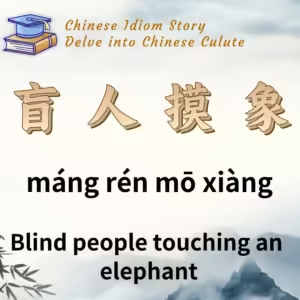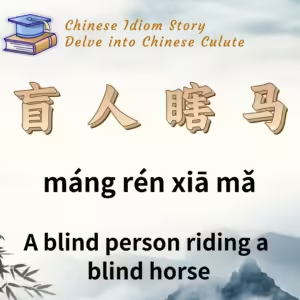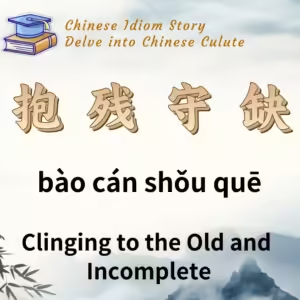
Chinese Idiom: 盲人摸象 (Mang Ren Mo Xiang)
English Translation: Blind people touching an elephant
pīn yīn: máng rén mō xiàng
Idiom Meaning: To have an incomplete understanding of a situation or object, leading to stubbornness and misguided conclusions.
Historical Source: From the Indian Buddhist scripture Nirvana Sutra (《涅槃经》).
Idiom Story:
The idiom “盲人摸象” originates from a story about a king who ordered six blind men to touch an elephant to describe what it was like. When the elephant arrived, each blind man approached it and began to feel different parts of its body.
The first blind man touched the elephant’s long trunk and exclaimed, “I’ve got it! The elephant is like a wooden stick.”
The second blind man felt the large ear and argued, “No, it’s not a stick; it’s like a big fan!”
The third blind man touched a leg and confidently asserted, “You’re both wrong. The elephant is like a stone mortar used for grinding rice.”
The fourth blind man ran his hands along the broad back and said, “No, the elephant is like a bed!”
The fifth blind man touched the head and insisted, “You’re all mistaken. The elephant is like a large rock.”
Finally, the sixth blind man felt the belly and declared, “You’re all incorrect! The elephant is clearly like a big water tank!”
This amusing yet insightful scenario illustrates how each blind man, limited by their individual experiences, formed a distinct and incorrect understanding of the elephant based on their limited perspective.
The story conveys a profound lesson about the dangers of partial knowledge and the importance of seeking a complete understanding before drawing conclusions. Thus, the idiom “盲人摸象” serves as a metaphor for people who assert their opinions based on limited information.






